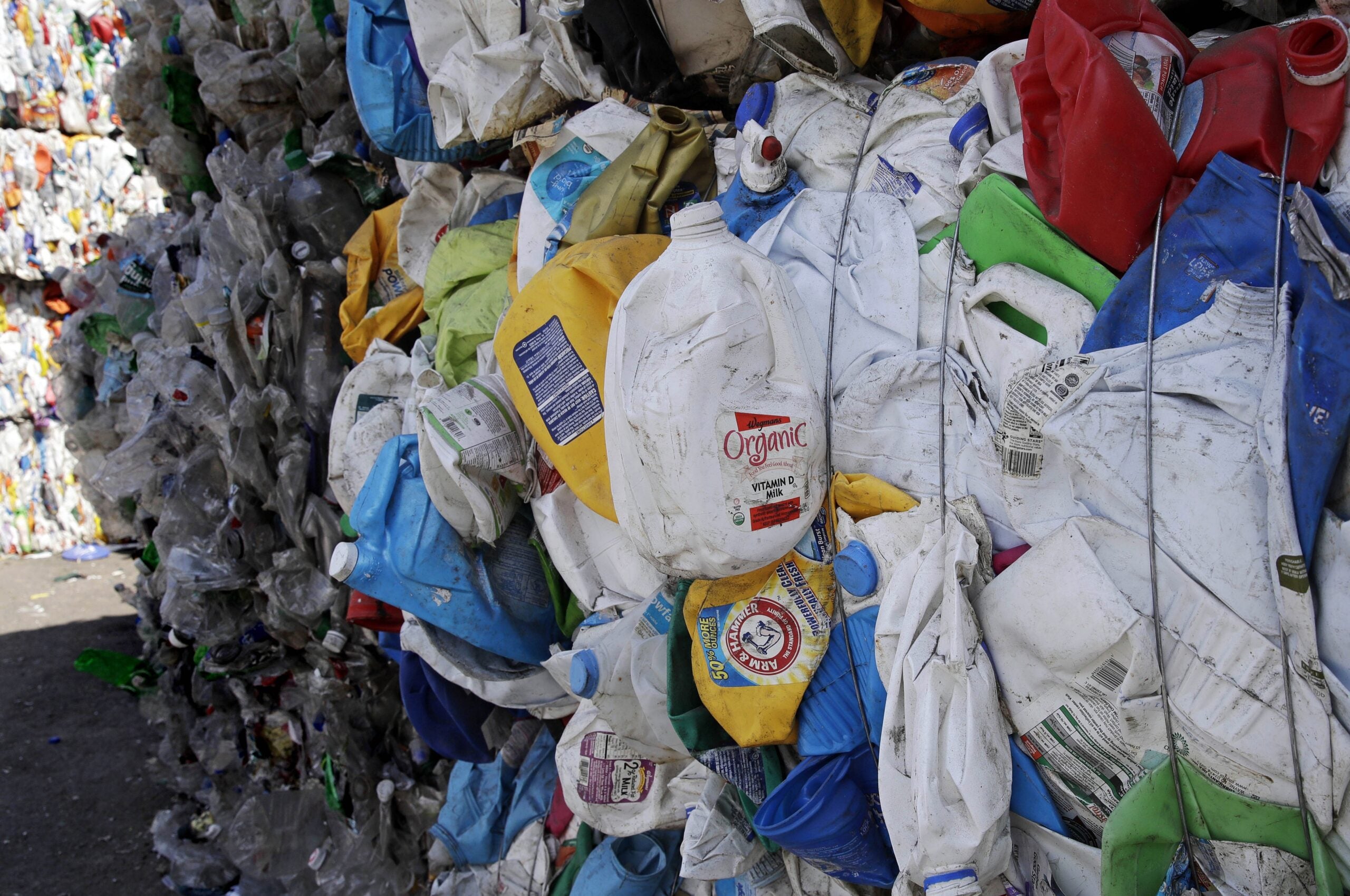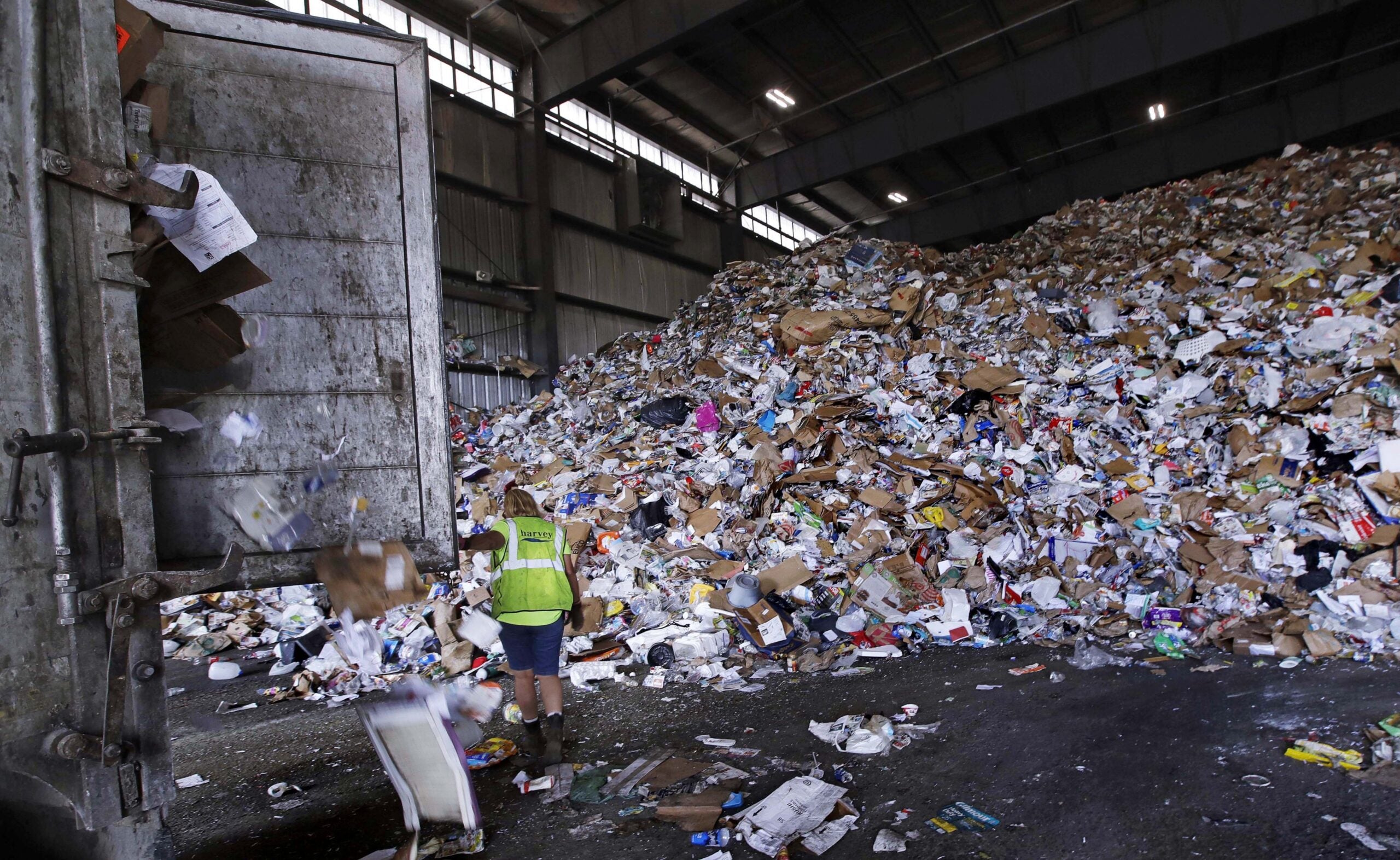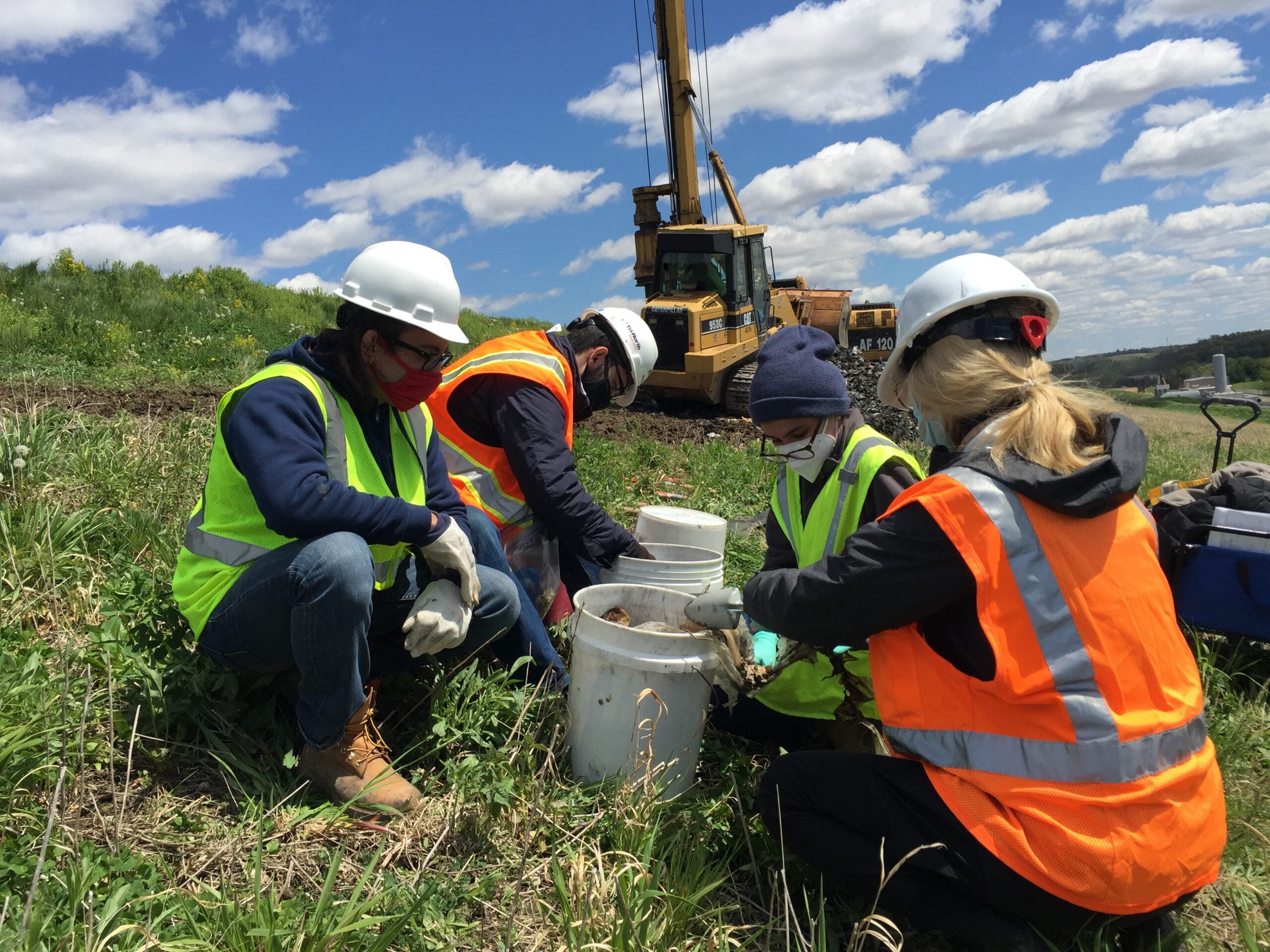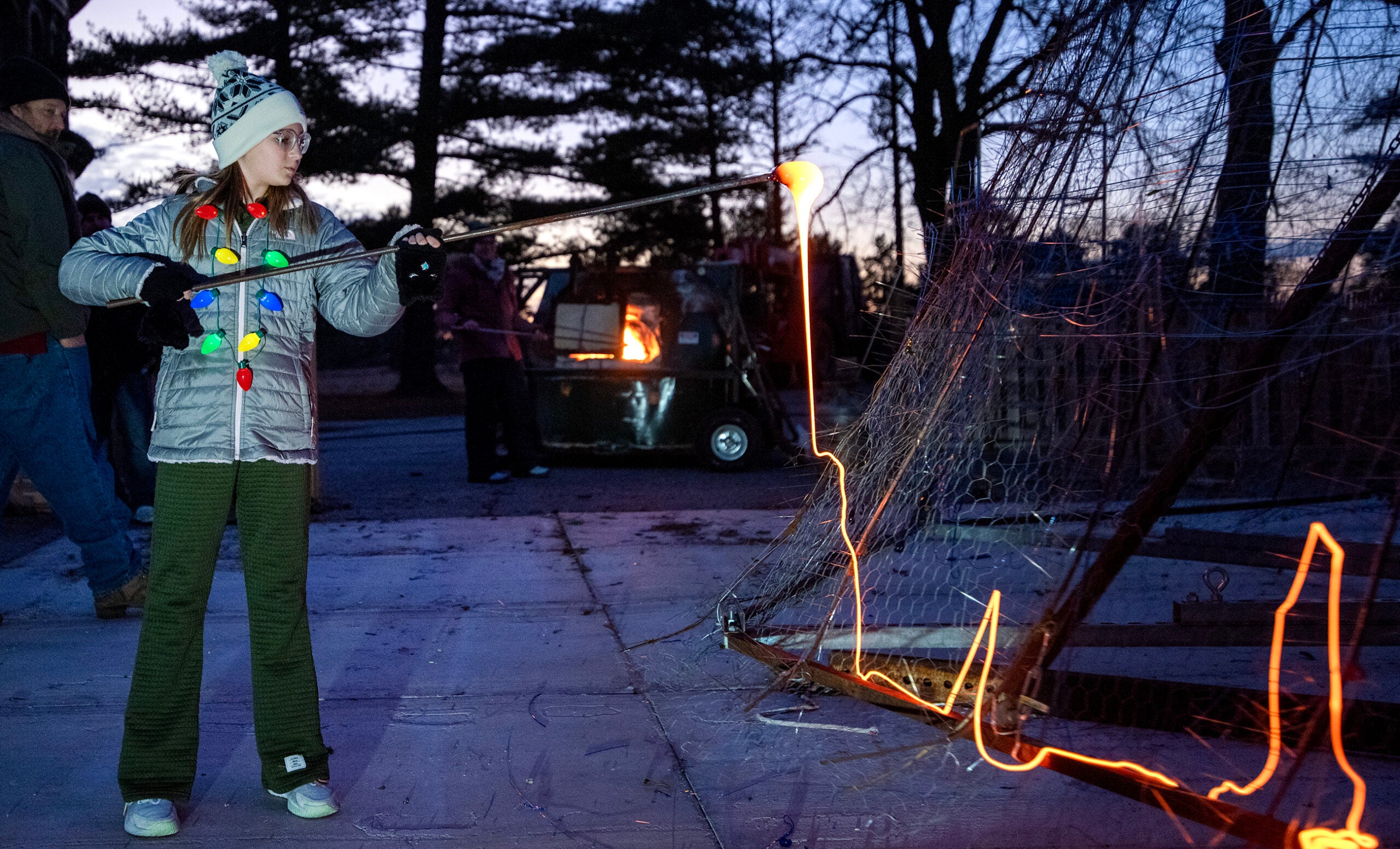Reduce. Reuse. Recycle.
It seems like such a simple concept — one that’s been around since the 1970s when Americans started embracing the need to do something different with the growing amount of garbage that was being collected.
But recycling has changed since the ’70s, and Paula Doherty from Monona wanted to know how things are recycled and where they go in Wisconsin, so she asked WPR’s WHYsconsin a series of questions about recycling in the Badger state.
Stay informed on the latest news
Sign up for WPR’s email newsletter.
But before we dug into the question, we wanted to know what piqued Doherty’s interest.
“I have always been interested in ways to reduce all the garbage we throw in landfills,” she said. “I grew up in a re-use/make-it-last kind of family. My dad was a zoning administrator for Clark County and was involved in early recycling efforts in the 1970s. As a kid, I remember thinking about the novel concept of recycling garbage.”
So, we posed Doherty’s question about where recyclables go to the Wisconsin Department of Natural Resources, which enforces the state’s waste reduction and recycling law passed by the Legislature in 1990.
“Residential recyclables from the curb (or drop-off programs) go to a self-certified material recovery facility (MRF). We have approximately 40 such facilities,” said Jennifer Semrau, waste reduction and diversion coordinator for the DNR.
“MRFs have the job of processing or separating the recyclables from one another, removing contamination and selling to end markets,” Semrau added.
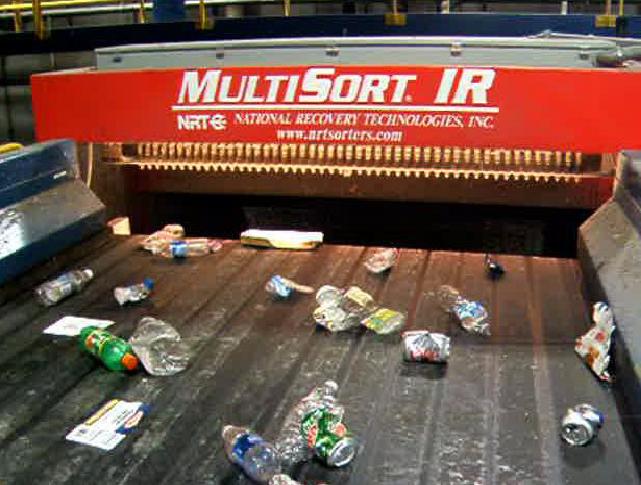
So when Doherty fills her recycling bin every other week in the south central city of Monona, the recyclable material is collected by Advanced Disposal, a Florida-based company that operates landfills and MRFs in 16 states including several in Wisconsin.
It is at that initial stage of recycling — when people are deciding what to recycle and how to prepare it to be recycled — where the process often breaks down.
“The most common mistake people make is putting items that can’t be recycled into their single-stream recycling container and contaminating the materials that can be recycled,” said Mark Nighbor, Advanced Disposal’s vice president of marketing and communications.
Single-stream recycling means all the allowable recycling waste can be placed in one container.
“We call this ‘wish-cycling’ which is throwing these items into the recycling container and wishing they can be recycled,” he added.
Cleaning dirty containers before putting them in the recycling bin helps with contamination.
Plastic Recycling In Wisconsin
Doherty also asked, “Is the plastic actually being recycled?”
“There has been a lot of news about plastics no longer being recycled because there is not a market to recycle it. I am wondering if it is still worth bothering to recycle plastic,” she said.
The short answer is yes, some but not all of it.
Semrau said in Wisconsin, only certain plastics — plastics labeled No. 1 and No. 2 — are required to be recycled. Those include things like soft drink bottles and milk jugs. Plastics labeled Nos. 3, 4, 5, 6 and 7 are not required to be recycled, she said.
While not all plastics are required to be recycled in Wisconsin, Nighbor said Advanced Disposal will recycle all forms of plastic.
“There are good markets for plastics No. 1 and No. 2, so these materials are recovered,” Semrau said. “All of these plastics sell for hundreds of dollars a ton, so it is far more economical for recycling programs to do so than to landfill them.”
The recycling of plastics has become more tricky in recent years as markets in other parts of the world have stopped taking recycled plastics from the United States.
“Contamination is an industry-wide challenge that is impacting the recycling markets by reducing the value of the materials that can be recycled and causing disruptions to the sorting and processing of acceptable materials,” Nighbor said.
“The largest consumer of recycling materials was China and primarily due to contamination they have imposed strict standards of quality and have rejected ship loads of recycling materials if they are contaminated,” Nighbor added. “They have also stopped accepting many materials in the past that were considered recyclable such as many of the post consumable types of plastic.”
Plastics are also polluting the world’s waters, including several giant plastic patches in the oceans.
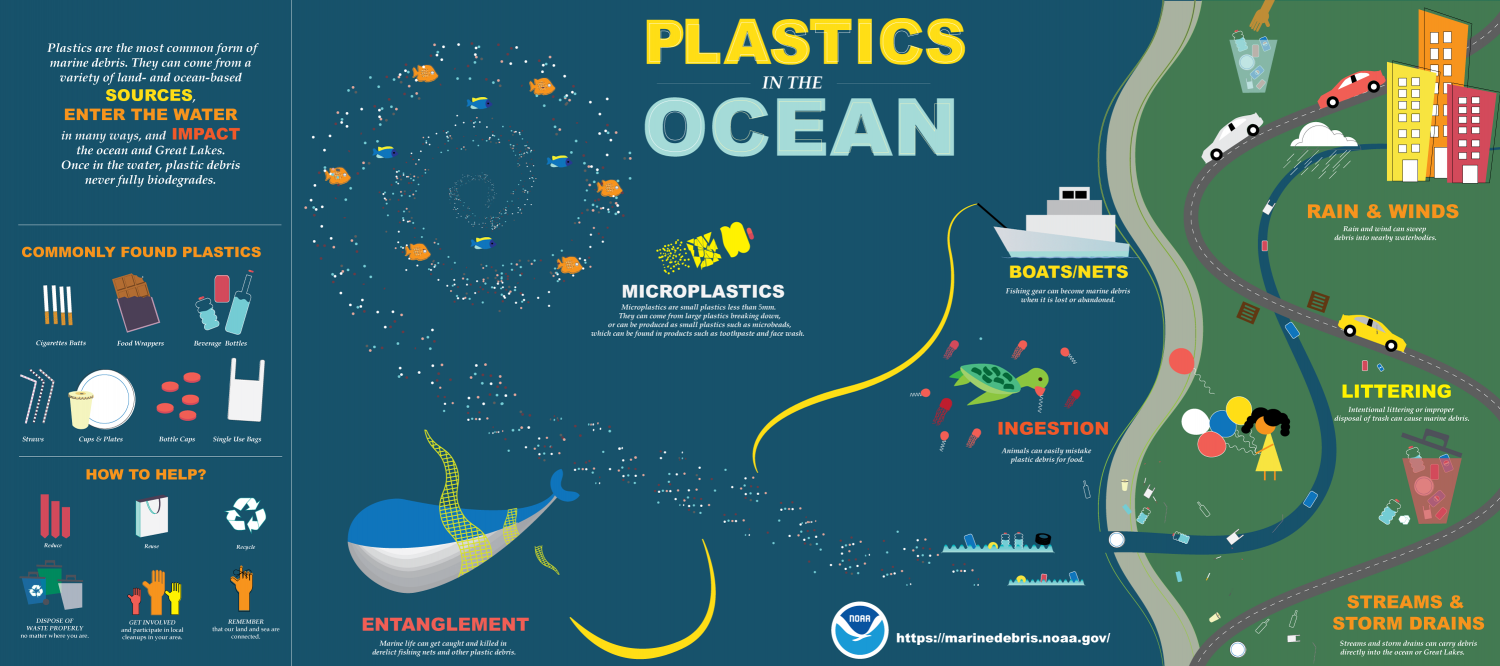
Many restaurants that used to hand out plastic straws to diners have either done away with the practice or ask customers to request a straw. Plastic bags have also fallen out of favor. Many retailers now accept them back from customers and recycle them since they clog sorting equipment at MRFs.
It’s easy to find a retailer that will recycle plastic bags in Wisconsin. There are two retailers in the city of Monona and hundreds statewide that recycle plastic bags.
As for legislation to address plastic straw usage, no bills have yet to be introduced at the state level, and Semrau said the DNR has no plans now, or in the immediate future, to officially address the plastic straw issue.
“Our recent focus has been on education on recycling contamination,” she said. “Markets are challenging now with more material in the domestic marketplace, we’ve been attempting to use our outreach channels to focus on things like plastic bags and proper sharps disposal,” referring to used needles like those diabetics use to take insulin.
Plastic Recycling Exports
Doherty also wanted to know what recyclables get exported?
For simplicity’s sake, we stuck with the issue of plastic recyclables.
It was a little harder to get an easy statewide picture of this as Semrau said the DNR doesn’t require MRFs to report where recycled materials are being exported.
Nighbor said Advanced Disposal MRFs in Wisconsin don’t send the plastic material they sort as part of the recycling process very far.
“The plastics we collect are bid on by multiple brokers as well as directly by processing plants. The majority of the high-grade plastics No. 1 and No. 2 are sent to a company in Michigan and also a firm in Iowa,” he said. “We also collect and produce a No. 3-No. 7 plastic bale that is purchased by various brokers which is processed and sorted by number.”
“We are not currently exporting our recyclable plastic materials at this time,” he added. “Plastics that are sold to brokers have the potential to be sent overseas, as well as to Canada, as the broker has the ability to do what they see fit with the material, but the vast majority of the plastic we sell remains within the United States.”
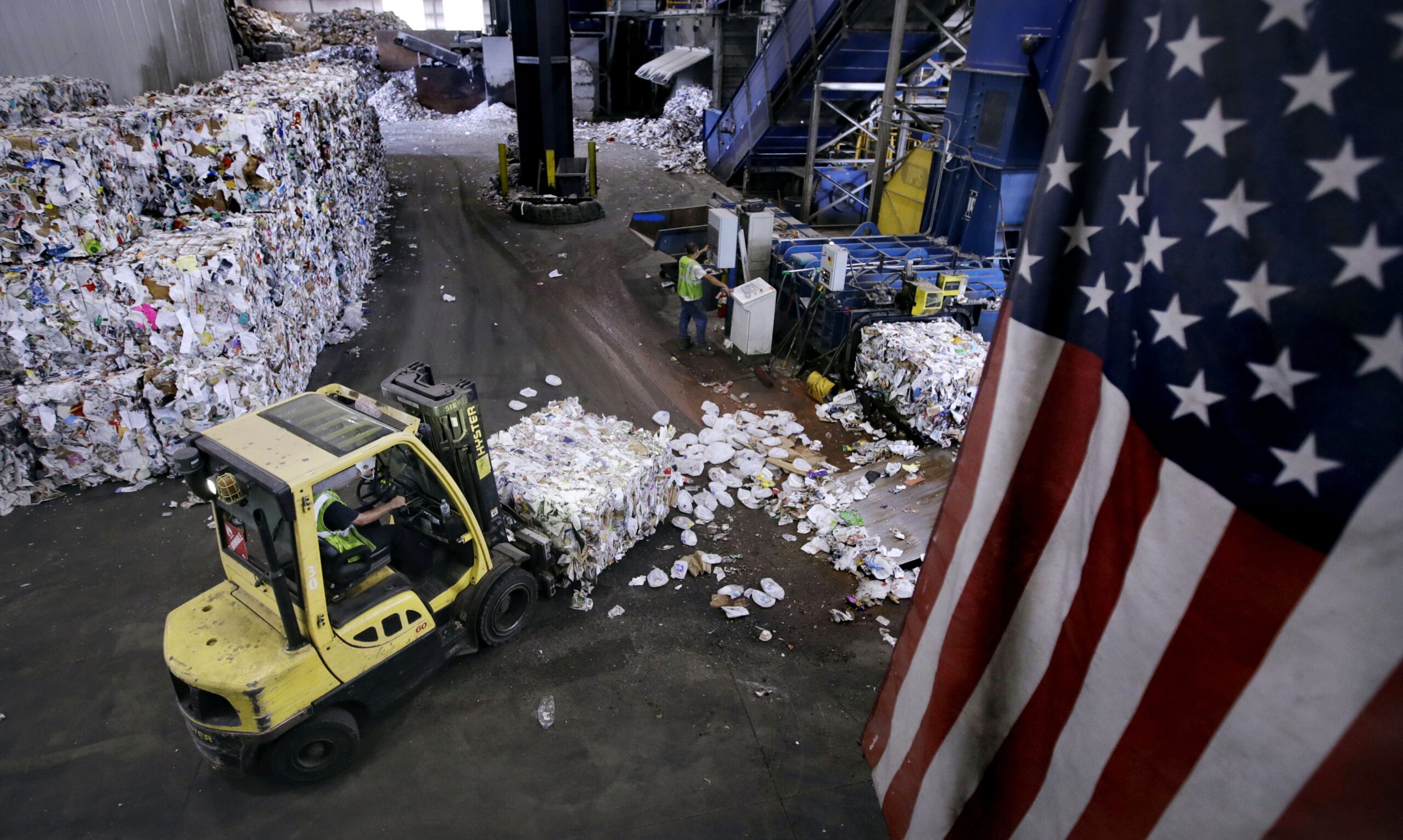
Landfills And Recyclable Material
Finally, Doherty asked: What ends up in landfills?
“The materials banned from landfill disposal are specified in state law. Items not on this list can all legally be landfilled. The DNR has not received any requests from recycling programs to landfill a landfill-banned material,” Semrau said.
Many materials that can be recycled are banned from state landfills like plastic milk jugs and water bottles, glass containers and tin cans, office paper and newspapers and magazine. Electronic devices including cell phones, computers and televisions have been added to that list in recent years.
“We understand that the program is not perfect. Certainly, some of the landfill banned materials end up in a landfill,” Semrau said. “In 2009, (the) DNR funded a waste characterization study to learn what was being landfilled. Given that it has been 10 years, staff are presently working to do another waste characterization study.”
While recycling may have gotten more complicated, Wisconsin residents tend to recycle. In 2016, the DNR found that more than nine out of 10 Wisconsin residents recycle voluntarily.
“The concept of recycling is simple, but what is recycled and how it is recycled is more complex. It used to be paper, cardboard and glass were separated by the public at the curb in dedicated containers but with the introduction of single-stream recycling and the expansion of what is considered recyclable has introduced more complexity,” Nighbor said. “There is also a lack of standardization on rules for recycling and there is a patchwork of state, county and local guidelines that can cause confusion for residents and businesses.”
